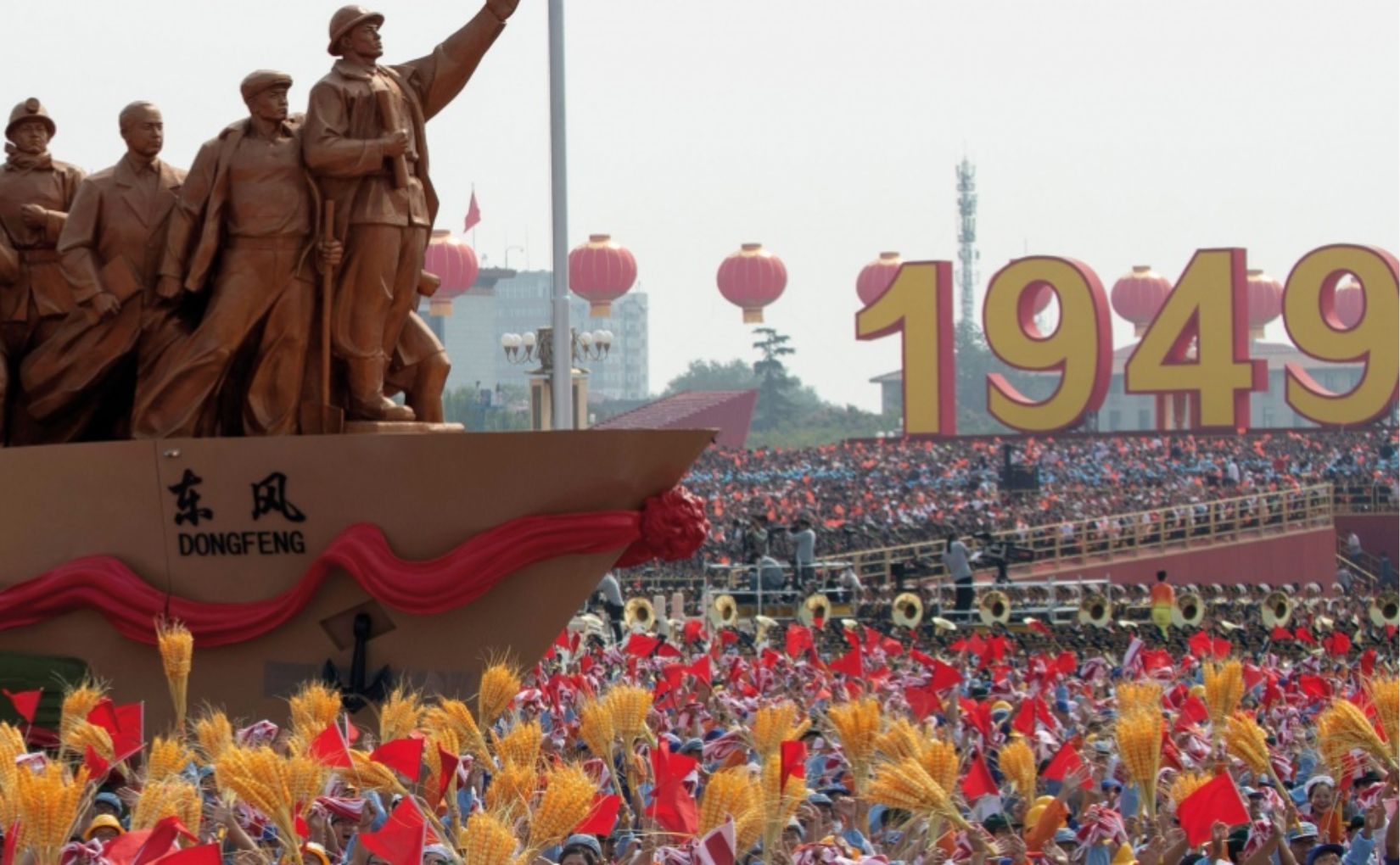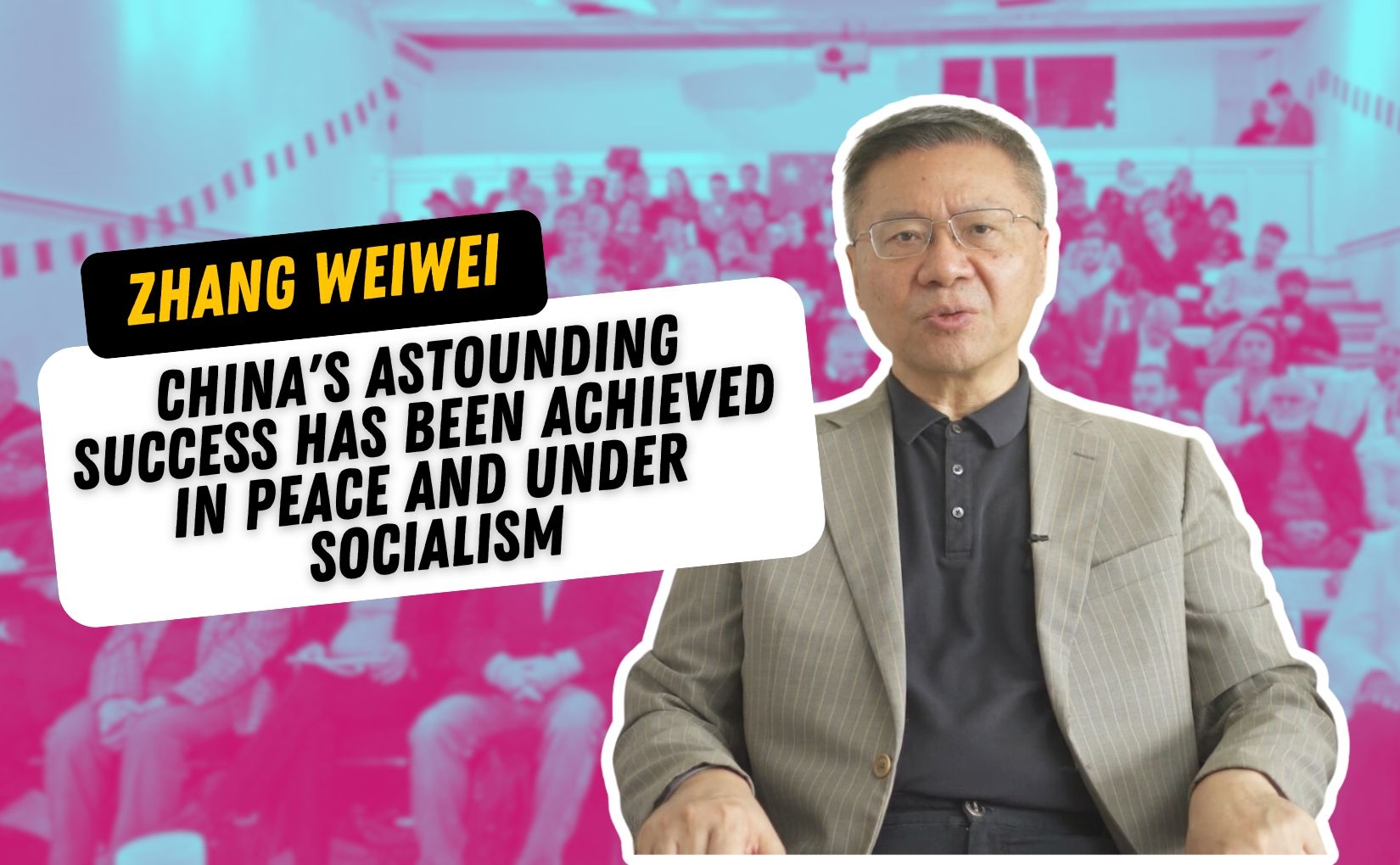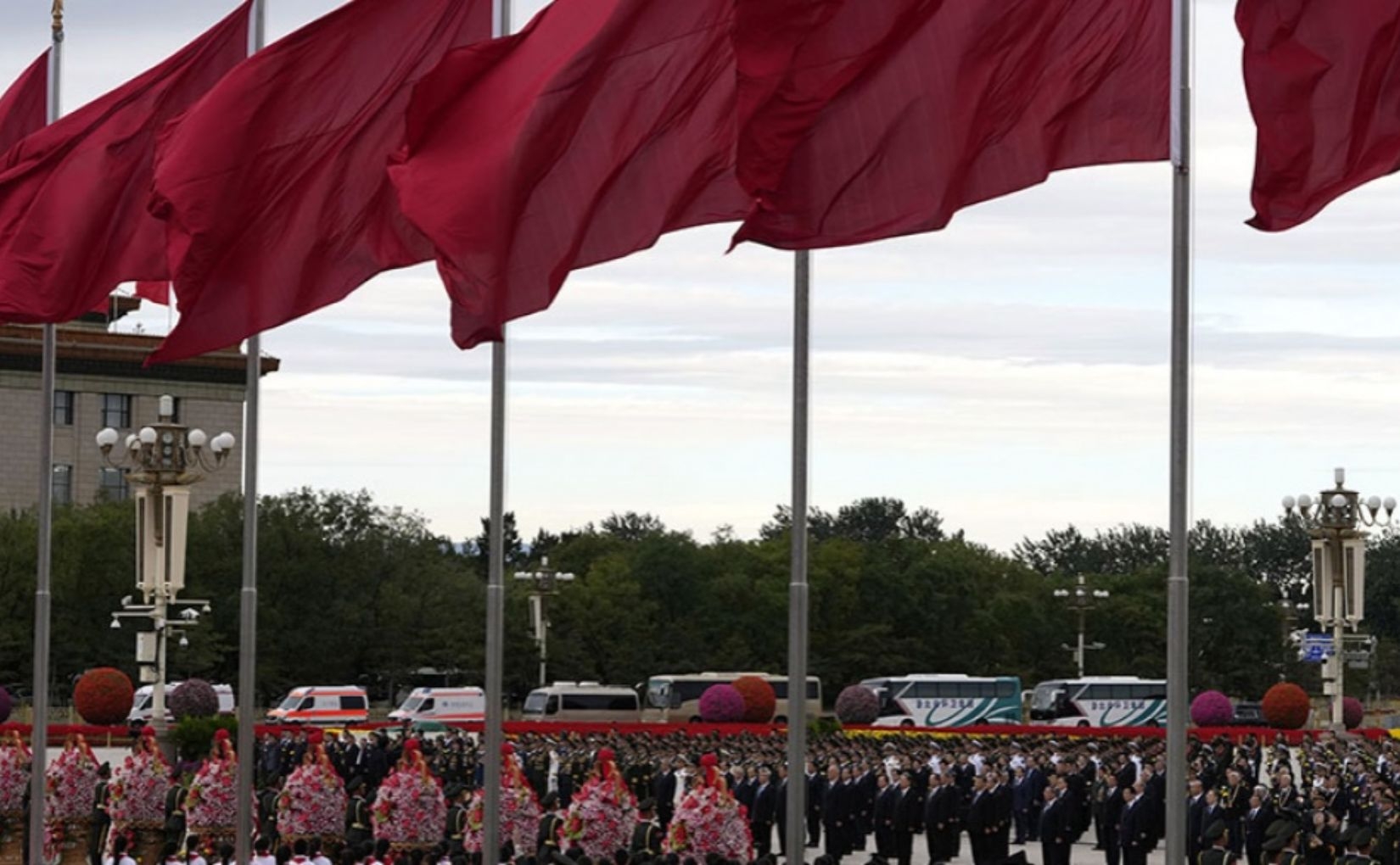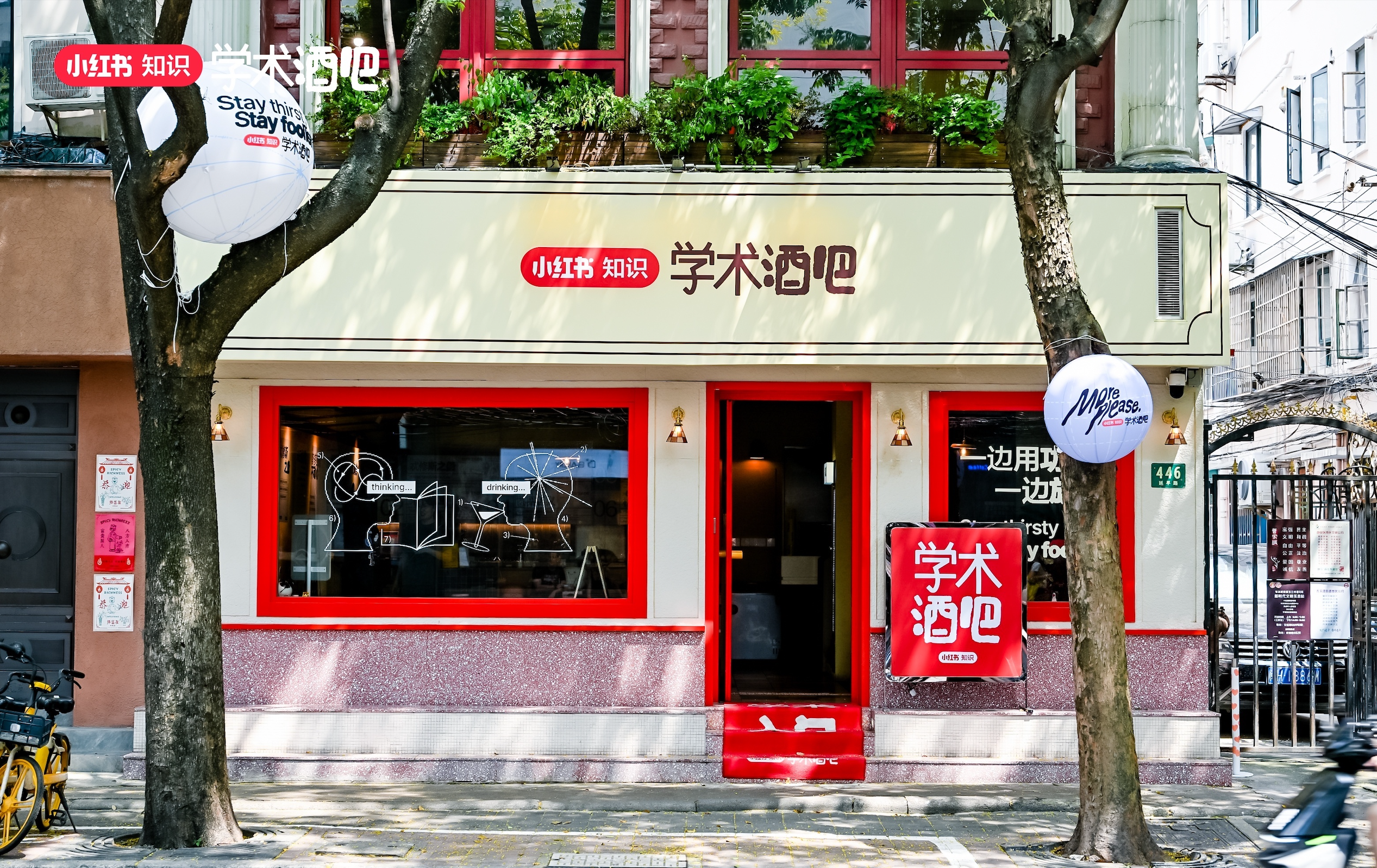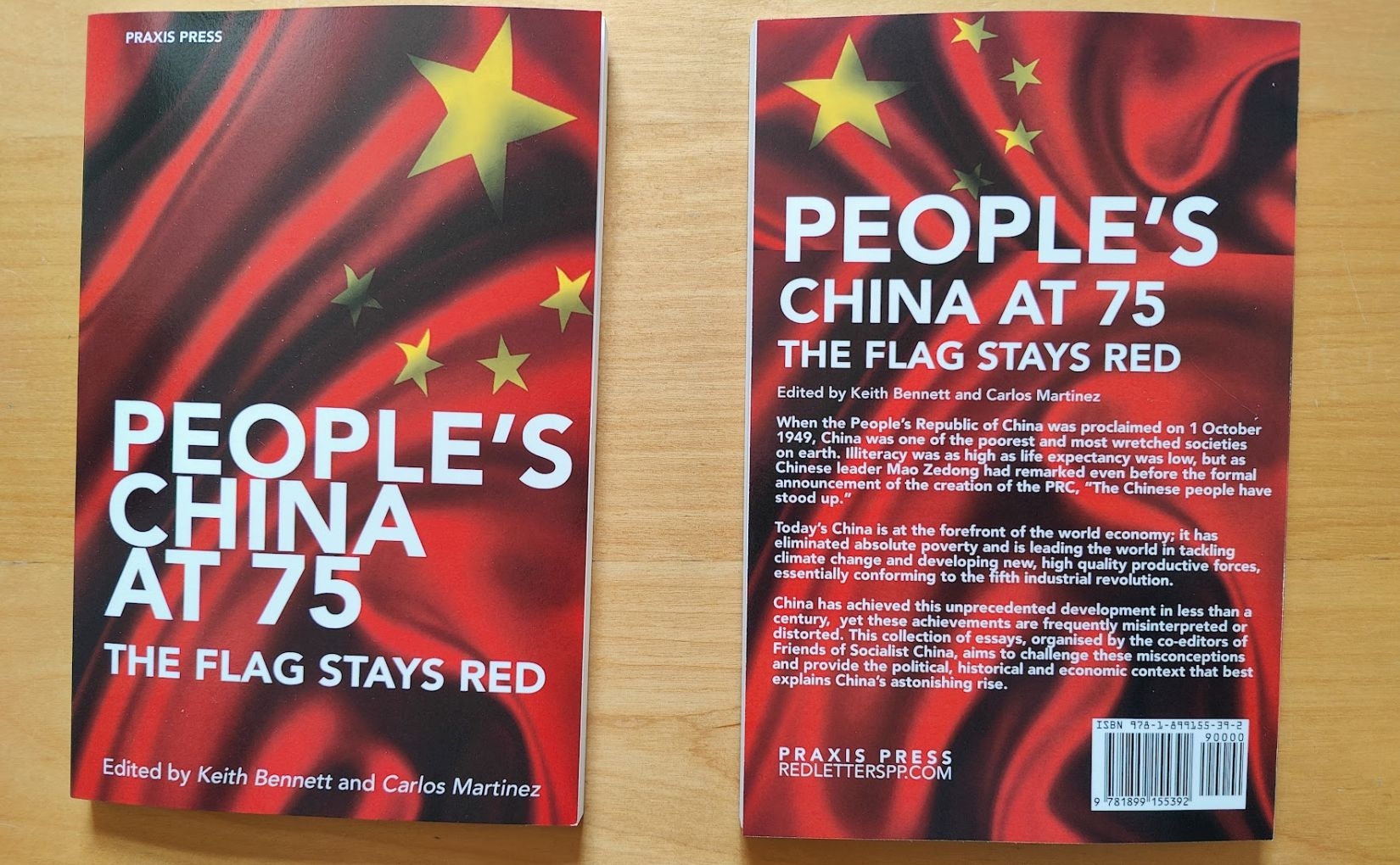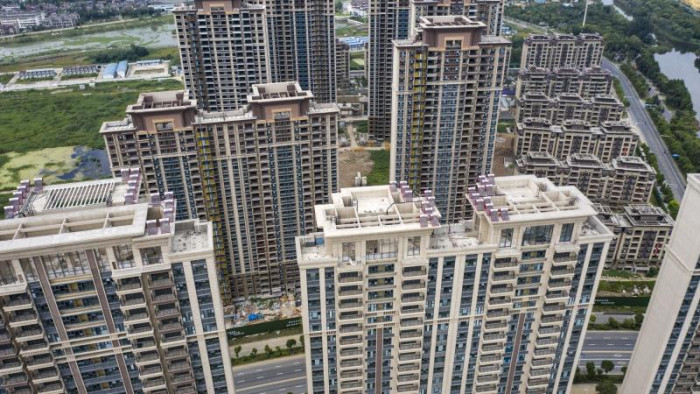China
As mentioned in the post (https://lemmygrad.ml/post/5205977) discussing a rule about anti-promotion of drugs and other substances: > If a lot of people oppose this rule, either by downvotes and/or number of comments, I will willingly step down as moderator of this community. I didn't see a large opposition to this rule which has now been deleted (see https://lemmygrad.ml/post/5220158), but I will pass the moderator position back to the instance admins nevertheless, specifically to [@GrainEater@lemmygrad.ml](https://lemmygrad.ml/u/GrainEater) who gave me the position when I requested it [months ago](https://lemmygrad.ml/post/3309751). This post can be used to select new moderators by leaving a comment if you're interested. I will also take part in applying to become a mod.
I'm sure some have seen the [discussion](https://lemmygrad.ml/post/5205977) around a new rule against the promotion of various substances in this community. This will be the summary based on data collected at this snapshot in time. Post score (upvotes/downvotes): 33/19 (Note that hexbear users cannot downvote) Number of users who left comments (including me): 21 Number of comments: 51 = 19 (left by me) + 32 (others) The following is a crude categorization of the 32 comments left by others, each category begins with the name and a 4-tuple of (number of unique users, number of comments, total comment upvotes, maximum upvotes obtained by a single comment). If the same user left multiple comments that are categorized the same, only the comment with the highest upvote will be counted when tallying upvotes, the rest are excluded. - Agree (2 users, 4 comments, 7 upvotes total, 4 upvotes max): Comments that agree without giving an explanation, 2 comments excluded from upvotes total. - Agree because history (2 users, 2 comments, 16 upvotes total, 11 upvotes max) : Comments that agree and mention China's history. - Agree because history but questionable (2 users, 2 comments, 20 upvotes total, 14 upvotes max) : Comments that agree because of China's history, but raised questions - Disagree (2 users, 2 comments, 16 upvotes total, 9 upvotes max) - Medical (4 users, 7 comments, 29 upvotes total, 8 upvotes max) : Comments that mention medical properties of certain substances, or their normal use in certain cultures. - Abstain (1 user, 1 comment, 7 upvotes total, 7 upvotes max) - Others: Discuss rule (4 users, 7 comments), Joke (5 users, 5 comments), Off-topic (1 user, 2 comments) The data show that most people agree to the rule partially due to China's history, but also question the necessity of having this rule and it's phrasing. Some people raised valid points about the medical properties of certain substances, and discussed changes to the rule to accommodate those points. Disagreements were seen mostly in downvotes or questions about the rule, only a few users left comments explicitly opposing the rule. Overall I would conclude that there isn't a strong consensus to keep this new rule, especially not in its original phrasing, and modifications to the rule have not been thoroughly discussed. There has also not been any evidence to an urgent need for the rule. Thus the rule will be deleted from the community rules in the spirit of democratic centralism.
(Note that this post might be updated over time, do not cross-post it by copying the contents as it might become outdated) There are already well-known platforms like marxists.org that have a comprehensive collection of the works of various Marxists, but they have yet to include prominent figures like Xi Jinping. As this is a community on China, this post will focus primarily on the works of Chinese Communists from official Chinese websites. The available Chinese resources are more comprehensive than English resources. ## English resources - Qiushi Journal (http://en.qstheory.cn) - English Edition of 求是杂志, a CPC Central Committee Bimonthly. Please note that this website does not support HTTPS! - Includes all 4 volumes of *Xi Jinping: The governance of China*, but does not include footnotes. [Volume I](http://en.qstheory.cn/thegovernanceofchinaI.html), [Volume II](http://en.qstheory.cn/thegovernanceofchinaII.html), [Volume III](http://en.qstheory.cn/thegovernanceofchinaIII.html), [Volume IV](http://en.qstheory.cn/thegovernanceofchinaIV.html) - National People's Congress (http://en.npc.gov.cn.cdurl.cn/) - English version of 中国人大网. Please note that this website does not support HTTPS! - Includes just the first 3 volumes of *[Xi Jinping: The governance of China](http://en.npc.gov.cn.cdurl.cn/thegovernanceofchina.html)*, but includes footnotes. - Theory China (https://en.theorychina.org.cn) - English version of 理论中国网, website by the History and Literature Research Institute of the CPC Central Committee (中共中央党史和文献研究院) - The section titled "[Leaders' Works](https://en.theorychina.org.cn/llzgyw/WorksofLeaders_984/)" includes: selected works of [Mao Zedong](https://en.theorychina.org.cn/llzgyw/WorksofLeaders_984/mao-zedong/) 毛泽东, [Zhou Enlai](https://en.theorychina.org.cn/llzgyw/WorksofLeaders_984/zhou-enlai/) 周恩来, [Liu Shaoqi](https://en.theorychina.org.cn/llzgyw/WorksofLeaders_984/liu-shaoqi/) 刘少奇, [Zhu De](https://en.theorychina.org.cn/llzgyw/WorksofLeaders_984/zhu-de/) 朱德, [Deng Xiaoping](https://en.theorychina.org.cn/llzgyw/WorksofLeaders_984/deng-xiaoping-/) 邓小平, [Chen Yun](https://en.theorychina.org.cn/llzgyw/WorksofLeaders_984/chen-yun/) 陈云, [Jiang Zemin](https://en.theorychina.org.cn/llzgyw/WorksofLeaders_984/jiang-zemin/) 江泽民. Only includes a few of the works by [Hu Jintao](https://en.theorychina.org.cn/llzgyw/WorksofLeaders_984/hu-jintao/) 胡锦涛 and [Xi Jinping](https://en.theorychina.org.cn/llzgyw/WorksofLeaders_984/xi-jinping/) 习近平. - The books are read through a browser ebook reader interface. Text can be selected and copied by first clicking on the "T" icon at the bottom-right corner for "Select Text" (on mobile, you have to tap on the circle with three dots first), then selecting the passage desired and clicking on the "Copy" button that appears near the cursor. ## Chinese resources - 学习强国 (https://www.xuexi.cn) - website by 中共中央宣传部 (Publicity Department of CPC Central Committee), in the section titled "[学习理论](https://www.xuexi.cn/xxqg.html?id=3cba33e067d64ded8a1a503f0774675c)": - [学习全书](https://www.xuexi.cn/33590d1e7810a9270f32d4a9a092c446/632637934f4fde6f0cefbf743596aee5.html): Includes the works of 马恩 (Marx and Engels), 列宁 Lenin, 毛泽东 Mao Zedong, 邓小平 Deng Xiaoping, 江泽民 Jiang Zemin, 胡锦涛 Hu Jintao, 习近平 Xi Jinping. - [新时代 新经典](https://www.xuexi.cn/xxqg.html?id=4am4gi118kir4am4gi118kir4am4gi118kir): Comprehensive list of works by 习近平 Xi Jinping, including works published pre-2012 before he became 总书记 (General Secretary). - 理论中国网 (https://www.theorychina.org.cn/) - website by the History and Literature Research Institute of the CPC Central Committee (中共中央党史和文献研究院) - The section titled "[领导人著作](https://www.theorychina.org.cn/llzgxs/lxzz_894/)" includes: selected works of [毛泽东](https://www.theorychina.org.cn/llzgxs/lxzz_894/mzd/) Mao Zedong, [周恩来](https://www.theorychina.org.cn/llzgxs/lxzz_894/zel/) Zhou Enlai, [刘少奇](https://www.theorychina.org.cn/llzgxs/lxzz_894/lsq/) Liu Shaoqi, [朱德](https://www.theorychina.org.cn/llzgxs/lxzz_894/zd/) Zhu De, [邓小平](https://www.theorychina.org.cn/llzgxs/lxzz_894/dxp/) Deng Xiaoping, [陈云](https://www.theorychina.org.cn/llzgxs/lxzz_894/cy/) Chen Yun, [江泽民](https://www.theorychina.org.cn/llzgxs/lxzz_894/jzm/) Jiang Zemin, [胡锦涛](https://www.theorychina.org.cn/hjt/) Hu Jintao, [习近平](https://www.theorychina.org.cn/xjp/) Xi Jinping. - 中央党史和文献研究院网 (https://www.dswxyjy.org.cn/) - website of History and Literature Research Institute of the CPC Central Committee - The section titled "[成果总库](https://ebook.dswxyjy.org.cn/)" includes the works of more Chinese Communists than those in 学习全书 above, but some books still require Adobe Flash Player to be viewed. - 宣讲家网 (http://www.71.cn/) - website by 中共北京市委宣传部 (Publicity Department of CPC Beijing Municipal Committee). Please note that this website does not support HTTPS! - The section titled "[经典文献](http://www.71.cn/acastudies/classicdoc/)" includes the works of 马恩 (Marx and Engels), 列宁 Lenin, 毛泽东 Mao Zedong, 周恩来 Zhou Enlai, 刘少奇 Liu Shaoqi, 朱德 Zhu De, 邓小平 Deng Xiaoping, 陈云 Chen Yun, 任弼时 Ren Bishi, 江泽民 Jiang Zemin ### Chinese audiobooks - 共产党员网 (https://www.12371.cn/) - website by 中央组织部 (Organization Department of the CPC Central Committee) - The sections titled "[思想理论](https://www.12371.cn/special/sxll/)" and "[理论学习有声书](https://www.12371.cn/special/llxx/)" contains audiobooks for the works of 毛泽东 Mao Zedong, 邓小平 Deng Xiaoping, 江泽民 Jiang Zemin, 胡锦涛 Hu Jintao, 习近平 Xi Jinping ## Other languages - Theory China (website by the History and Literature Research Institute of the CPC Central Committee, 中共中央党史和文献研究院) is available in these languages: [中文](https://www.theorychina.org.cn/), [English](https://en.theorychina.org.cn/), [Français](https://fr.theorychina.org.cn/), [Pусский](https://ru.theorychina.org.cn/), [Español](https://sp.theorychina.org.cn/), [Deutsch](https://ge.theorychina.org.cn/), [日本語](https://jp.theorychina.org.cn/), [العربية](https://ab.theorychina.org.cn/). They all have the corresponding section for "Leaders' Works", but there may be less translated works depending on the language.
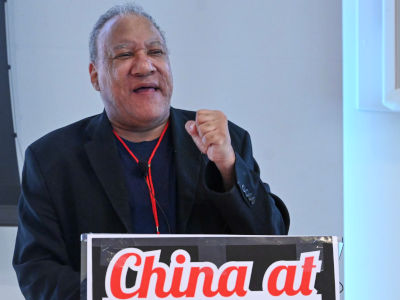 www.workers.org
www.workers.org
>China does not want war. China wants peace. It wants to continue its development in peace. It wants to help the world develop in peace, especially the people of the Global South who have been the big victims of imperialism and colonialism. It wants to help them, but [neo]imperialism does not want peace. It doesn’t want China to develop in peace. It doesn’t want the world that it does not control to develop, and this is the problem. > >And what this murder in Beirut tells us — and there have been almost 1,000 people who have been murdered in Lebanon over the past couple of weeks — and the genocide in Gaza, what it tells us is that [neo]imperialism is willing to go to almost any length, unimaginable lengths of violence and terror to maintain its empire, which is crumbling. > >They are willing to flirt with World War Three, which could mean the end of all life on the planet Earth. And you know, when an empire is crumbling, that’s when it’s most desperate and dangerous. That’s when it’s most likely to resort to violence. And this is what we are witnessing, comrades. > >There are some in the ruling class here who are afraid of war, a wider war, a world war. They don’t think the U.S. will win. As a matter of fact they think it would hasten the demise of [neo]imperialism. And we think that they are right about that, and they’d like to maintain U.S. hegemony by other means. But whatever that is for the ruling class, they are losing. They’re not in the driver’s seat. > >It’s the warmongers who are in the driver’s seat. So we see the people rising up all over the world against the empire. We see the people demonstrating in the streets over the murder of the leader of Hezbollah. Actually, as I was leaving home, I saw on social media that there was a demonstration of thousands of people in Baghdad. They had entered the Green Zone and were trying to get into the U.S. Embassy. > >There are people demonstrating everywhere, around the world and particularly in West Asia. It shows you that — this is a hunch — they’re not going to take it by lying down. As a matter of fact, it’s going to wave off the mere resistance and, of course, the countries that are under attack, in particular China, that are in the crosshairs of [neo]imperialism, are going to fight back to defend themselves. They can defend themselves. > >But we have to ask ourselves this. Are we going to just leave it up to people in other places, to China, they’re willing to do it, they’ll do what they have to do, but are we just going to leave it up to them? Especially those of us who happen to be at the center of world imperialism, particularly here in the U.S. which they used to call the belly of the beast. We can’t do that. That’s not right. > >We have to seriously consider what our responsibilities as anti-imperialist revolutionaries are, and we have to show them those responsibilities, and then […] we gotta do whatever it takes. You see, the people of the world, they’re demanding this of us. History is demanding us. Save this planet if it could talk, is demanding this of us, that we do whatever is necessary, however we need to do it. However long it takes, and it doesn’t have to take too long for the anti-war and anti-imperialist forces to get so big and so strong that we can shut the world down to stop war. What real choice do we have? > >We’ve got to get away from complacency if that’s an issue. I know that there are those of us who do whatever we are doing on a day-to-day basis, whenever we can. We’ve got to get away from our routine — what they call routinism. It’s almost like a semi-conscious feeling that, yes, that needs to be done, but somebody else can do it. > >Sometimes, I think we have a partial kind of disconnect, a partial, you know, denial of what’s happening. Perhaps we can feel somewhat powerless, but all things we’ve got to push aside now, we got to push them aside, and we got to figure out what we are going to do. > >I think, I’m not sure, that comrade Maduro in Venezuela, a couple of months ago, called for an international united front against [neo]imperialism. Not sure if it’s just something that he floated, or whether it’s real and how he’s following up on that. But I’ll tell you comrades, if there was ever a time for that, and I’m not talking about just a name — he seems to have a name — I’m talking about something flesh and blood and strength and power that’s real. If there was ever a time for that, it’s now. > >I’m thinking about our own plan. The BRICS countries are meeting in Russia in the last week of October. And that’s good. People have talked about … and we can talk about that. But again we can’t just leave it up to the BRICS to push [neo]imperialism back, to marginalize it, to diminish its hegemony. We’ve got to do something! The masses have to do something. The working class has to do something decisive. And a lot of us are convinced that they can. And those who are not convinced, better get with it.
Pretty heartwarming story. I’m not sure what the exact details are but it seems like basically after October 7th 2023 he flew over because they wanted to see each other in case she passed during the war. She ended up moving back with him to China in November, pretty nuts!
See also this excellent breakdown by Arnaud Bertrand of what Whole-Process People's Democracy is and how it differs from western liberal conceptions of democracy: https://xcancel.com/RnaudBertrand/status/1843548618361582057 *I know many people in the West are extremely cynical when China describes itself as a democracy - a "Whole-Process People’s Democracy" to be precise - but very few actually take the time to understand what China actually means by that, how it differs from liberal democracy and why they think it's a good system for them.* *This article written by the President of Renmin University and just published in Qiushi (the official theoretical journal of the Central Committee of the CPC) is a relatively good primer for this:* *First of all, I think we're enormously confused when we try to understand the Chinese system through our vision of the Chinese Communist Party as a political party like we think of the Democrats or Republicans in the US. And we're therefore immediately led to conclude: "one party system, therefore not a democracy".* *However when you look at how the Chinese describe the CPC, the equivalent in the West isn't a political party but the Republic or constitutional order itself.* *Indeed, as the article makes clear the CPC is presented as the fundamental guarantor of the entire political system and the people's interests. The article describes how "whole-process people's democracy ensures unity between the leadership of the CPC, the running of the country by the people, and law-based governance." This integration of party, people, and law presents the CPC not as one competing entity within the system, but as the overarching framework that ensures the system's coherence and functionality. The CPC is portrayed as the institution that "accurately gauge[s] the public's pulse in governance and reflect[s] the public will," a role that liberal democracies would be ascribed to the entire apparatus of democratic governance, not to a single political party.* *So that's the first thing. In effect China isn't a "one-party state" but a "zero party state" with the CPC as the embodiment of the state itself, functioning not as a competitor for power but as the permanent custodian of the people's mandate.* *Secondly, it's key to understand what China means by "whole process" and by "people's democracy".* *Whole process effectively means that their democracy isn't limited to the periodic voting that characterizes Western liberal democracies, which China argues is too limited, too intermittent and frankly too corrupt to be truly representative of the people's will. Instead the Chinese conception, as outlined in this article, envisions democracy as a constant, pervasive element of governance and daily life.* *The idea of "whole process" is that democracy should be a constant process of engagement between the government and the people in order to have policies which are more responsive to people's needs and are shaped in real-time as opposed to just at election time.* *Concretely this is embodied by institutions like the Chinese People's Political Consultative Conference (CPPCC) at the national level (where representatives from various social groups and different parts of China offer input during the policy-making process), or residents' committees and village committees at the grassroot level which are vehicles for people to participate in decisions that affect their daily lives, from local development projects to community services. There are also myriads of channels for ordinary citizens to supervise government actions (like report corruption or misconduct by officials) or give feedback and suggestions. And there is of course the fact that there are 100 million party members in the country who live among the population and are tasked with understanding what the people need or want.* *In effect what "whole process" means is that China's democracy isn't about the spectacle of election campaigns and the (often hollow) promises of competing parties, but about fostering a culture of continuous dialogue, consultation, and collaborative problem-solving between the government and the people.* *It also means that China's view of democracy is outcome-oriented as opposed to procedural. The idea being that what really matters are the practical results of governance (as per the article: "delivering sustained, stable, and sound national development") as opposed to viewing mere electoral processes as the basis of democratic legitimacy.* *Now, what does "people's democracy" mean? Aren't all democracies "people's democracies"?* *"People's democracy" is a historical communist term to contrast with what was termed "bourgeois democracy", where the state in capitalist countries was seen as offering only formal political rights while maintaining economic inequality and the dominance of the capitalist class.* *Whilst the meaning has evolved somewhat since then, it still retains this idea of prioritizes the welfare and will of the masses over the interests of elites or special interest groups. As the Quishi article states, China's policies must "truly reflect the people's concerns, embody their aspirations, promote their wellbeing, and meet their desire for a better life."* *This idea also has roots in traditional Chinese culture, which has always emphasized collective harmony and social cohesion over individualism. In contrast to Margaret Thatcher's famous assertion that "there's no such thing as society" - now widely held in the West - the Chinese worldview sees society not as a mere aggregation of individuals, but as an organic entity with its own existence and importance. This perspective is reflected in the article's emphasis on "fostering social harmony" as a key goal of their democratic system.* *Lastly, in a "people's democracy", there's also idea that the people are not just voters, but the driving force behind national development. This perspective is clearly reflected in the article, which emphasizes that "the people are the true driving force behind history." It goes on to state that Chinese modernization "must firmly rely on the people, respect their creativity, and harness their collective wisdom and strength."* *This view stands in contrast to liberal democracies where citizens' primary political role is often reduced to choosing between competing parties. In the Chinese system, the CPC's role is also that of an organization that mobilizes and channels the people's energy and is able to effectively harness their collective power for national development.* *Last point, which I'm sure many of you will be asking themselves is: "yes that's all good and well, but is it really a democracy if people can't choose their rulers?"* *The Chinese view on this would be that it more democratic to have rulers selected based on objective meritocratic criteria, based on how well particular officials have served the people and on exam results, than on opinions shaped by candidates' skills at campaigning or at appealing to narrow interest groups.* *Also, as the article emphasizes in China's system accountability is built into ongoing processes and institutions (and not just through elections): "leading Party and state bodies and their personnel are required to exercise their powers in strict accordance with statutory mandates and procedures and wholeheartedly serve the people." Which is hard to argue when you look at the sheer number of officials who get disciplined or even sent to jail every year, even some at the very top. No other country on earth has its officials face such level of scrutiny and accountability. And as we've seen before there's direct public oversight here too as the people are encouraged to report officials if they're corrupt or engage in misconduct.* *Lastly, as stated before, the Chinese system provides numerous channels for people to influence policy and governance beyond just choosing leaders. So the concept of "official" is somewhat different from Western notions. In China's whole-process people's democracy, officials are seen more as executors of the people's needs and will, rather than disconnected decision-makers. Their legitimacy stems not from being elected, but from how effectively they implement policies that reflect and serve the people's interests. The idea is to have a system where political legitimacy is continuously earned through tangible achievements rather than periodically granted through ballots.* *So there you go, admittedly a very different view of democracy from what we're used to in the West. You're obviously free to think whatever you want about it but I like the "Ideological Turing Test" idea, where you shouldn't be allowed to criticize something if you aren't able to explain it in ways indistinguishable from that of someone who defends the position. As such this gives you a brief overview of how China sees its democracy, from their viewpoint, far from all-too-easy caricatures of it.* *And personally that's what fascinates me most about China: how it sees the world in dramatically different ways from the West. Ways that challenge us to question so many things we take for granted, like in this instance the nature of representation or our approach to political legitimacy.* *We often pride ourselves in the West on our openness to "diversity" but typically what we mean by that is a mere ersatz of diversity, people who remain well within the Overton window. What we have here with China is TRUE diversity, not just in appearances only, but in core concept of philosophy and societal structures. And instead of fearing it or smearing it as we so often do, we should instead engage with it, try to understand it as it offers an immensely necessary mirror through which we can reflect on ourselves.*

A reminder of the unparalleled advances in public health made by communist states. Even if every absurd fabrication that the anti-communist propagandists like to parrot about the millions supposedly killed by Stalin, Mao, etc. was true, those numbers would pale in comparison to the number of lives they saved, the hundreds of millions of life spans extended by entire *decades*. And if you want the perfect control sample of what it looks like when you start with nearly identical conditions but don't have communist central planning, look at India.
https://archive.is/ncZAG
As examples, the article provided high-speed rail as an advanced sector, cars as medium, and commercial airplanes as an early sector. I've search through Lemmy multiple times but I haven't found it :(
Edit: tl;dr: all tools seem to be capable of 28 nm process, except the lithography machines. However, the report (why?) doesn't include the most advanced lithography tools that are known to be manufactured. 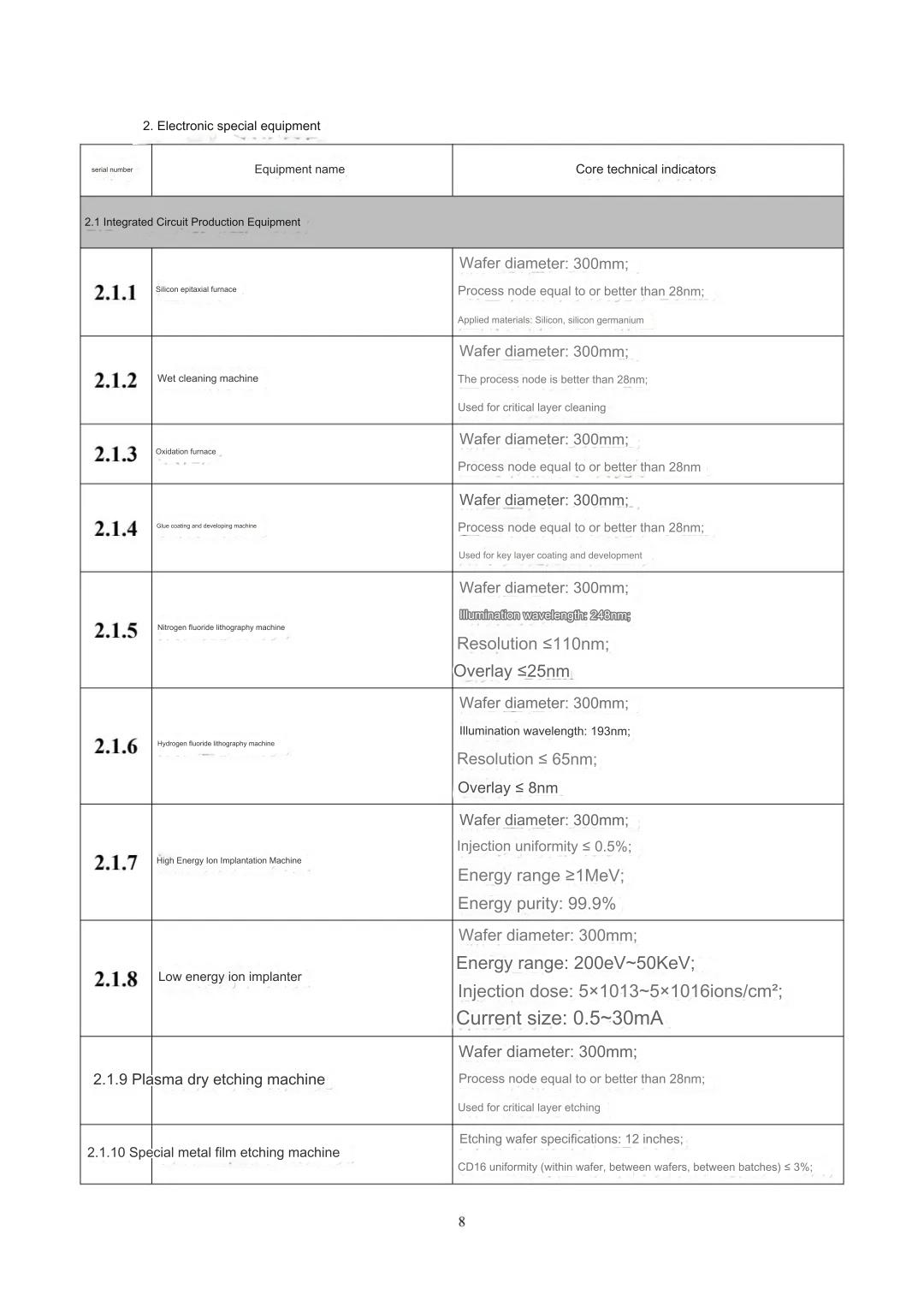 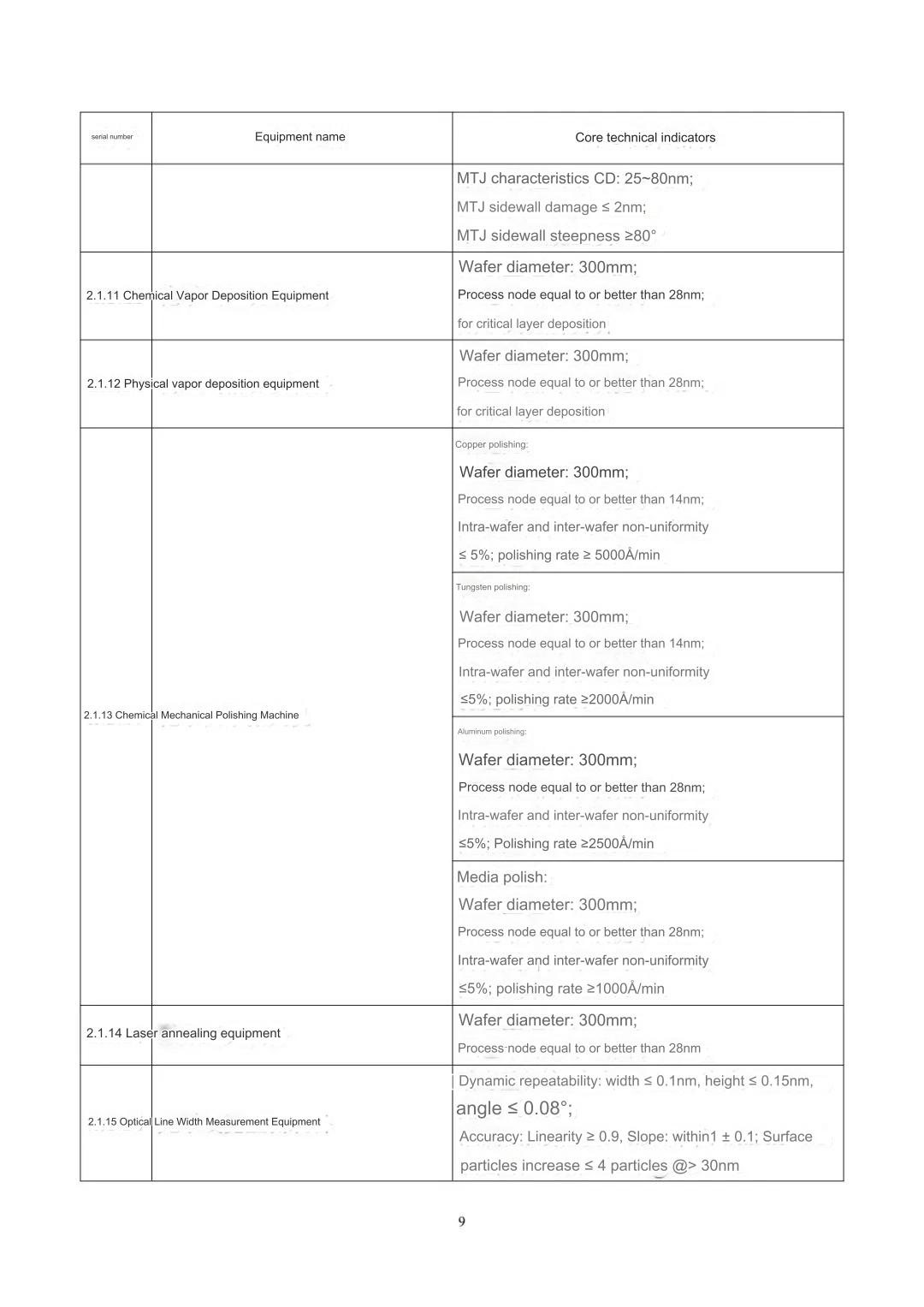 [Source](https://www.sinodefenceforum.com/t/chinese-semiconductor-thread-ii.9109/page-450)
Beijing battles demographic crisis and pressure on pension system by keeping population in workforce for longer
